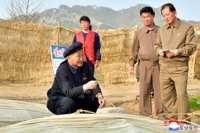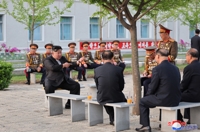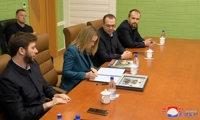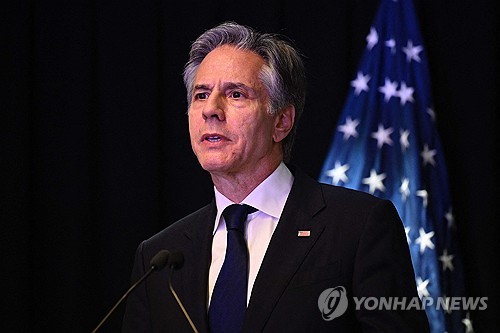(News Focus) FTA with China to help boost S. Korean exports, fuel growth
By Lee Joon-seung
SEOUL/SEJONG, Nov. 30 (Yonhap) -- The ratification of the free trade pact with China is expected to breathe new life into South Korea's sagging exports and fuel the country's growth, local observers said Monday.
The bilateral free trade agreement (FTA), signed on June 1 and now passed by the National Assembly, will make South Korea's No. 1 overseas market more accessible to local businesses.
The lowering of tariffs, in particular, should help transform exports, which have weighed down growth in 2015, regain their previous status as an engine for economic growth.
"A revival of exports as a growth engine, coupled with gains in private spending, should contribute to a more vibrant economy in the new year," a government source said.
Asia's fourth-largest economy, which grew 3.3 percent in 2014, may see its growth fall below the 3-percent mark this year. The finance ministry has maintained that 3.1-percent growth may be possible for this year, although the Bank of Korea and other private sector think tanks are forecasting upper 2-percent growth.
The trade and industry ministry said that in the first year, the FTA with China will likely push up South Korea's exports by up to 1.5 trillion won (US$1.29 billion).
This will be welcomed news for the world's sixth-largest exporting nation, whose outbound shipments crashed 15.9 percent on-year in October and backtracked 7.6 percent compared to the year before in the first 10 months of 2015.
South Korea's two-way trade is expected to fall shy of the $1-trillion mark this year.
The bilateral trade deal aims to remove duties on 90 percent of all goods over the next 20 years. This translates into $5.44 billion in fewer duties being paid by exporters annually.
"Once it goes into effect, Beijing will get rid of tariffs on 958 products estimated to be worth some 8.7 billion won in goods," it said.
The ministry in charge of trade promotion said that with this year's ratification, companies will be able to receive tariff cuts in 2016.
On overall economic growth, Finance Minister Choi Kyung-hwan pointed out that if exports had expanded to levels seen in the past, South Korea's growth would have reached the upper 3-percent mark.
Data showed that despite export contractions, South Korea's gross domestic product moved up 1.2 percent in the third quarter, the sharpest gain reached since 1.7 percent in the second half of 2010.
"Consumption helped the economy to grow in the three-month period, while exports, which traditionally led growth, cut into growth by a factor of minus 0.7 percentage points," a trade ministry official said.
Reflecting this, reports by the state-run Korea Institute for Industrial Economics and Trade (KIET) and other think tanks, said the free trade pact should push up South Korea's real gross domestic product by 0.96 percent over the next 10 years.
Benefits to consumers will likely reach $14.6 billion while greater business opportunities can create some 53,000 new jobs, the think tanks predicted, adding the country's balance of trade will also improve by $433 million in the next two decades.
"Overall the bilateral FTA will push up exports that can naturally bolster economic growth," KIET said.
Despite such a rosy outlook, some critics said the FTA will hurt local farmers and fishermen by making them cope with an influx of cheaper imports from the world's second-largest economy.
"China has almost the same harvest cycle, and it produces very similar crops as those raised in South Korea, so the FTA will seriously hurt local growers," said Cho Byung-ok, secretary general of the Korea Peasants League.
Others organizations such as the Korean Advanced Farmers Federation argued that the government did not carefully considered the impact before signing the agreement.
To alleviate such concerns, the government and lawmakers agreed to expand tax benefits to farmers and fishermen, give more subsidized fuel and other benefits worth some 1.6 trillion won over the next 10 years.
Policymakers also said that both private and public companies that will benefit from the FTA, will be asked to voluntarily contribute some 100 billion won per annum over the next decade, so 1 trillion won can be collected to help farmers and fishermen.
yonngong@yna.co.kr
(END)
-
 'Queen of Tears' weaves rich tapestry of Korean contemporary art
'Queen of Tears' weaves rich tapestry of Korean contemporary art -
 Ateez member Yunho throws first pitch at MLB match between Dodgers, Mets
Ateez member Yunho throws first pitch at MLB match between Dodgers, Mets -
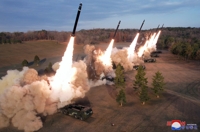 N. Korea says Kim guided simulated nuclear counterattack drills for 1st time
N. Korea says Kim guided simulated nuclear counterattack drills for 1st time -
 N. Korea calls envisioned U.S. aid to Ukraine 'hallucinogen'
N. Korea calls envisioned U.S. aid to Ukraine 'hallucinogen' -
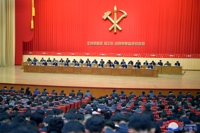 N. Korea calls on party propaganda officials to work harder
N. Korea calls on party propaganda officials to work harder
-
 'Queen of Tears' weaves rich tapestry of Korean contemporary art
'Queen of Tears' weaves rich tapestry of Korean contemporary art -
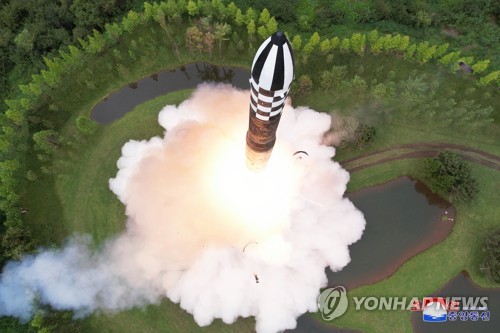 Experts see possibility of N.K. conducting nuclear test before U.S. presidential vote
Experts see possibility of N.K. conducting nuclear test before U.S. presidential vote -
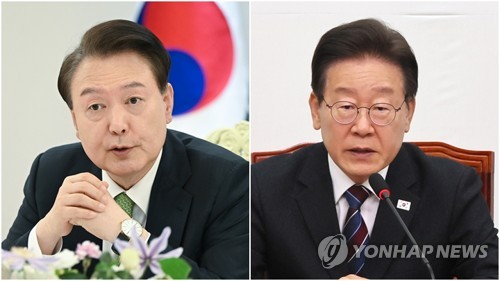 Details of meeting between Yoon, opposition leader undecided: presidential office
Details of meeting between Yoon, opposition leader undecided: presidential office -
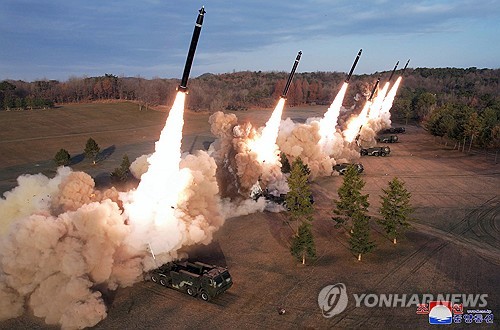 N. Korea says Kim guided simulated nuclear counterattack drills for 1st time
N. Korea says Kim guided simulated nuclear counterattack drills for 1st time -
 Looming weekly closure of major hospitals feared to worsen medical service crisis
Looming weekly closure of major hospitals feared to worsen medical service crisis
-
 S. Korea eliminated in Olympic football qualifiers as poor defense, undisciplined play prove costly
S. Korea eliminated in Olympic football qualifiers as poor defense, undisciplined play prove costly -
 Indonesia coach left with mixed feelings after eliminating native S. Korea in Olympic football qualifiers
Indonesia coach left with mixed feelings after eliminating native S. Korea in Olympic football qualifiers -
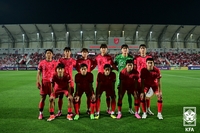 10-man S. Korea lose to Indonesia to miss out on Paris Olympic football qualification
10-man S. Korea lose to Indonesia to miss out on Paris Olympic football qualification -
 (LEAD) 10-man S. Korea lose to Indonesia to miss out on Paris Olympic football qualification
(LEAD) 10-man S. Korea lose to Indonesia to miss out on Paris Olympic football qualification -
 ADOR CEO calls conflict with Hybe 'worst experience of my life'
ADOR CEO calls conflict with Hybe 'worst experience of my life'















